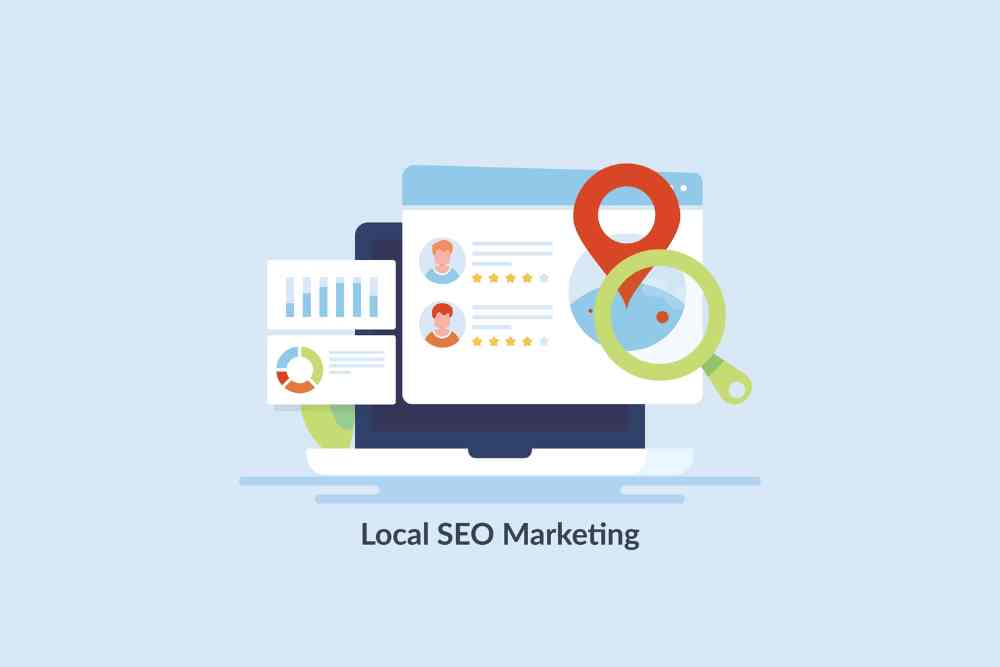Strategies for Keeping Location Data Accurate

Get a 14-DAY FREE TRIAL for 300 Local Citations you can edit on one simple dashboard.
Accurate location data is crucial for businesses in today’s digital age. Whether it’s for marketing purposes, customer targeting, or operational efficiency, having precise location information can make a significant difference in the success of a business. However, maintaining accurate location data can be challenging, especially with the constant changes in the digital landscape. In this article, we will explore strategies that businesses can employ to ensure the accuracy of their location data.
The Importance of Accurate Location Data
Get your FREE 14 DAY TRIAL for over 300 local citations. Click below!

Before diving into the strategies, let’s first understand why accurate location data is so important. Here are a few key reasons:
- Customer Targeting: Accurate location data allows businesses to target their marketing efforts to specific geographic areas. This enables them to reach the right audience and increase the effectiveness of their campaigns.
- Operational Efficiency: For businesses with physical locations, accurate location data is essential for optimizing operations. It helps in managing inventory, planning logistics, and ensuring smooth customer experiences.
- Local SEO: Search engines rely heavily on location data to provide relevant search results to users. Having accurate location information increases the chances of businesses appearing in local search results, driving more organic traffic and potential customers.
Strategies for Maintaining Accurate Location Data
Get a 14-DAY FREE TRIAL for 300 Local Citations you can edit on one simple dashboard.
Now that we understand the importance of accurate location data, let’s explore some strategies that businesses can implement to ensure its accuracy:
1. Regularly Update Business Listings
One of the most crucial steps in maintaining accurate location data is to regularly update business listings across various online platforms. This includes directories, review sites, social media platforms, and search engines. By keeping these listings up to date, businesses can ensure that their location information is accurate and consistent across the web.
Get a 14-DAY FREE TRIAL for 300 Local Citations you can edit on one simple dashboard.
One tool that can greatly simplify this process is Citation Vault. Citation Vault is a local citation service that automates the process of updating business listings. It can automatically update over 300 local citations for any business, saving time and effort while ensuring accuracy.
For example, let’s say a business changes its address or phone number. Without updating the listings, potential customers may end up at the wrong location or be unable to contact the business. By using a service like Citation Vault, businesses can easily update their information across multiple platforms, reducing the risk of misinformation.
2. Leverage Geolocation Technology
Get a 14-DAY FREE TRIAL for 300 Local Citations you can edit on one simple dashboard.
Geolocation technology has become increasingly sophisticated in recent years, offering businesses powerful tools to maintain accurate location data. By leveraging geolocation technology, businesses can track and update their location information in real time.
For example, mobile apps can use GPS data to determine a user’s location and provide relevant information based on their proximity to a business. This allows businesses to deliver personalized experiences and ensure that users are always presented with accurate location data.
Furthermore, geolocation technology can also be used to monitor and analyze foot traffic patterns. By understanding how customers move within physical spaces, businesses can optimize store layouts, improve customer flow, and enhance overall operational efficiency.
3. Implement Data Verification Processes
Get a 14-DAY FREE TRIAL for 300 Local Citations you can edit on one simple dashboard.
Implementing data verification processes is another effective strategy for maintaining accurate location data. This involves regularly reviewing and validating the information in business listings to ensure its accuracy.
One way to do this is by sending automated emails or text messages to customers, asking them to verify their contact information. This not only helps in keeping the data up to date but also provides an opportunity to engage with customers and gather feedback.
Additionally, businesses can also leverage third-party data verification services to ensure the accuracy of their location data. These services use advanced algorithms and data sources to cross-reference and validate the information, reducing the chances of errors or outdated data.
4. Monitor Online Reviews and Feedback
Get a 14-DAY FREE TRIAL for 300 Local Citations you can edit on one simple dashboard.
Online reviews and feedback can provide valuable insights into the accuracy of location data. By monitoring these platforms, businesses can identify and address any discrepancies or inaccuracies in their listings.
For example, if a customer leaves a review stating that the business’s address is incorrect, it is essential to investigate and rectify the issue promptly. Responding to reviews and addressing concerns not only helps in maintaining accurate location data but also demonstrates a commitment to customer satisfaction.
Get a 14-DAY FREE TRIAL for 300 Local Citations you can edit on one simple dashboard.
Accurate location data is vital for businesses in today’s digital landscape. It enables effective customer targeting, improves operational efficiency, and boosts local SEO efforts. To maintain accurate location data, businesses should regularly update their business listings, leverage geolocation technology, implement data verification processes, and monitor online reviews and feedback.
By following these strategies, businesses can ensure that their location data remains accurate and reliable, providing a solid foundation for success in the digital world. Tools like Citation Vault can further simplify the process by automating the updating of business listings across multiple platforms. With accurate location data, businesses can confidently reach their target audience, optimize operations, and drive growth.
Remember, accurate location data is not just a nice to have; it is a necessity in today’s competitive business landscape.
Frequently Asked Questions About The Strategies for Keeping Location Data Accurate

Why is it essential to keep location data accurate?
Ensuring location data accuracy is paramount for several compelling reasons:
Customer Experience: Accurate location data ensures customers can easily find and reach your physical location, avoiding unnecessary frustrations or missed visits.
SEO Value: Consistent and accurate location data helps improve your rankings in local search results, driving organic traffic to both your online and offline premises.
Reputation: Inaccurate location details can tarnish your business’s reputation, leading to negative reviews or customer distrust.
Business Insights: Precise location data supports better business decision-making, allowing you to identify key areas for expansion or optimization.
How often should I review and verify my business’s location data?
It’s crucial to review your business’s location data periodically. While a comprehensive review every quarter is a general best practice, you should immediately update your location data if you:
Relocate your business
Open a new branch
Alter your operating hours
Experience significant business model changes
Regularly monitoring customer feedback can also provide clues about any discrepancies in your location data.
Which platforms should I prioritize when updating my location data?
While it’s essential to maintain accurate location data across all platforms, certain platforms often have a more substantial impact on businesses:
Google My Business: As a dominant search engine, Google’s platform is a primary source for many customers seeking location details.
Yelp: Popular, especially in North America, for customer reviews and location searches.
Facebook: Many businesses use their Facebook page as a secondary website and a source for location and hours of operation.
Local Directories: Depending on your region and industry, certain local directories might be significant traffic sources. Ensure your data is consistent here as well.
What strategies can I adopt to ensure the accuracy of my business’s location data?
To ensure location data accuracy:
Regular Audits: Conduct routine checks of all platforms where your location data is listed. This can help identify any discrepancies or outdated information.
Centralized Database: Maintain a centralized system or database for all location-related data, ensuring updates are consistent across all platforms.
Feedback Loop: Encourage customers and staff to report any discrepancies they notice, creating a continuous feedback loop.
Use Location Data Management Tools: Several tools on the market can help manage and synchronize location data across multiple platforms, reducing manual errors.
Why is it vital to keep location data accurate for my business?
Ensuring location data accuracy is of utmost importance for various reasons:
Consumer Trust: Accurate location details ensure that customers can find your business without any hitches, enhancing their trust in your brand.
Operational Efficiency: It minimizes the chances of service disruptions, misdeliveries, or logistical errors that can arise from incorrect location data.
Local SEO: Accurate location data is essential for local search engine optimization. Search engines, especially Google, prioritize businesses with accurate and consistent location details in local search results.
Competitive Edge: Accurate location data ensures you’re readily accessible to customers, giving you an edge over competitors who might have outdated or incorrect information.
- local business listings
- local canadian citations
- local citations
- Strategies for Keeping Location Data Accurate






